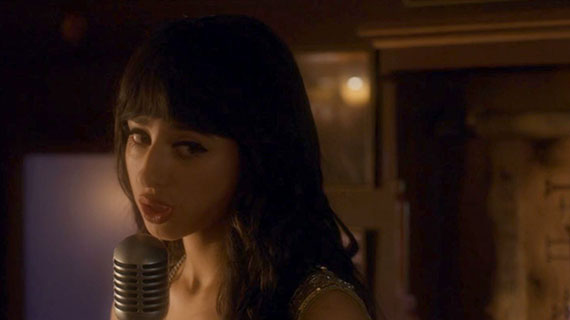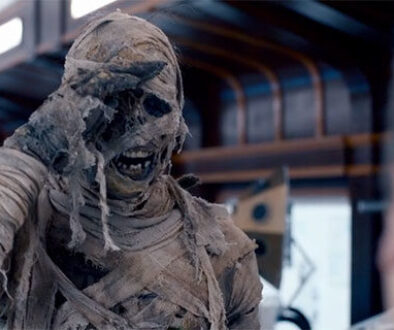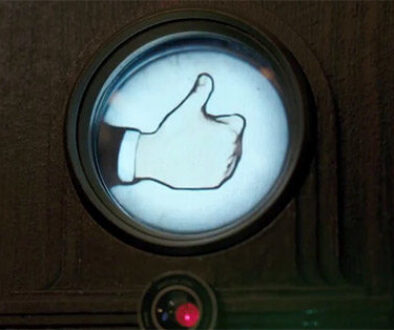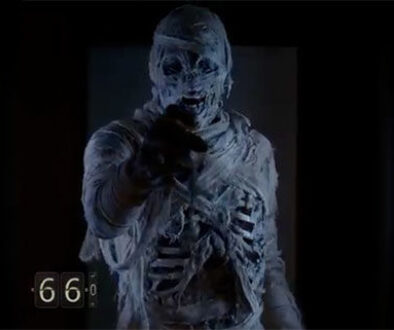Mummy on the Orient Express Review
Clint Hassell gives his verdict on the eighth episode of Series 8.

Two minutes and 14 seconds into “Mummy on the Orient Express,” Clara steps out of the TARDIS, ready for another adventure with the Doctor. Despite the incredibly fraught ending of “Kill the Moon,” where Clara quits as a companion – banishing the Doctor not only from her life, but seemingly from the planet as well – the two are apart for less than four minutes of screen time. “Mummy on the Orient Express” is careful to establish that, for the characters involved, several weeks have elapsed between the two episodes, during which time Clara realized she “hated” and then “liked” the Doctor; however, for the viewer, barely one week has passed. For Clara to reappear so quickly, cheapens the end of “Kill the Moon,” which indicated lasting ramifications for Clara and the Doctor.
Not seeing Clara and the Doctor struggle with the absence of the other is a missed opportunity for Series 8. Even a montage of little moments – Clara goes to the school’s storage closet to tell the Doctor something, only to find the room empty, or sees something blue in the distance, and mistakes it as being the TARDIS, or hears her cat in the bedroom, and assumes the Doctor has returned – would add significance to the events of “Kill the Moon” and really flesh out the characters’ thought processes. For example, who called who first to break the ice? (Clara, though the Doctor was probably waiting by the phone, in his way.) How has Clara’s anger at the Doctor affected her relationship with Danny? He certainly seems complacent, on the couch, in his pajamas, with only the catch in his throat signifying that he’s bothered that the Doctor can take his girlfriend on a train ride in space. Danny still points out that the Doctor is “not [her] boyfriend,” and Clara is still lying to Danny, yet the couple’s mutual “I love you” feels more genuine here than it does in “The Caretaker.” How did we get to that point?
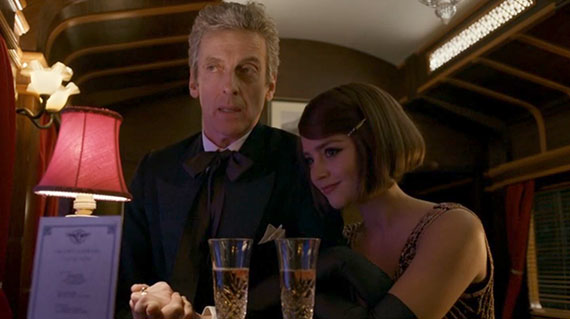
Through Series 6 and 7, Steven Moffat ignored detailing the characters’ natural, emotional reactions, focusing instead on impressing the audience with his clever, twisty plots. Series 8 has brought a new Moffat, complete with a novel examination of the Doctor/companion dynamic, and the concept that having all of space and time as a playground isn’t just destructive to the Doctor, but also to the humans with whom he travels. This depth is a welcome change, and it has elevated several otherwise-lamentable episodes by adding something incredible – analogy in “Robot of Sherwood,” character development in “The Caretaker,” and lasting ramifications in “Kill the Moon,” for example.
A conversation between Clara and Maisie Pitt, in “Mummy on the Orient Express,” specifically demonstrates how well Series 8 weaves character arcs and plot points together to create a more satisfying narrative. Maisie feels guilty because she has imagined her hateful grandmother dying, a fantasy that has now come true. Clara assures her, “You didn’t do anything wrong. Difficult people, they can make you feel . . . all sorts of things.” This small bit of dialogue and Maisie’s mirrored predicament are evidence of how Clara is navigating her feelings in the aftermath of “Kill the Moon,” an emotional arc not otherwise seen on screen.
The conversation continues, effortlessly switching from commentary to credible foreshadowing.
Maisie: “Oy, he was wrong . . . and high-handed, and thoughtless, and arrogant beyond belief . . . and you’re on a train with him!”
Clara: “I was saying goodbye. You can’t end on a slammed door.”
Maisie: “Yes, you can. Anyone can do it. People do it all the time. Except, of course, when they can’t.”
Is this a warning to Clara? To whom will she be unable to “say goodbye”? Suddenly, her future with Danny isn’t looking as certain as “Listen” painted it to be.
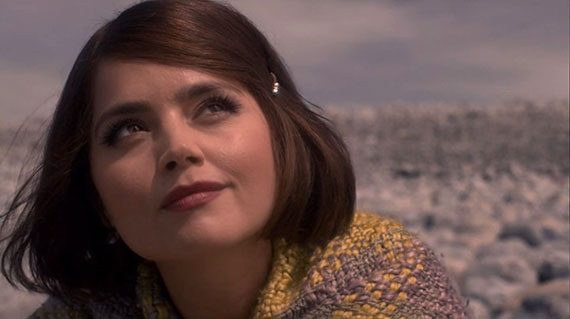
Despite its title, “Mummy on the Orient Express” really isn’t about the mysterious monster-of-the-week or the revelation of its origin. Not that this storyline is ignored, but it is certainly downsized in order to focus on the Doctor and Clara’s reconciliation. Rather a 20-minute adventure, wrapped in 25 minutes of character development, the episode still manages to incorporate much of what makes an ideal episode of Doctor Who:
- Who-specific in-jokes: “Are you my mummy?”; Jelly Babies; “That job could, uh, change a man.” “Yes, it does, frequently” (a killer regeneration joke)
- Unexpectedly funny moments: “There’s a body and there’s a mummy? I mean, can you not just get on a train? Did a wizard put a curse on you about mini-breaks?”; “mystery shopper”
- Characters acting realistically resourceful: Clara thinks to protect Maisie inside the TARDIS; the Doctor realizes that 66 seconds is “too specific for organic”
- A metatextual moment: “You know, Doctor, I can’t tell if you’re a genius or just incredibly arrogant.”
“Well, uh, on a good day, I’m both.” - A satisfactory ending . . . : while the resolution is quick, there is no “The Power of Three”-style defeat of the Mummy via sonic screwdriver
- . . . that leaves just enough mystery for later episodes: Who did gather this collection of “doctors and professors” together? Who is behind Gus and for what purpose are they looking to reverse engineer the Foretold?
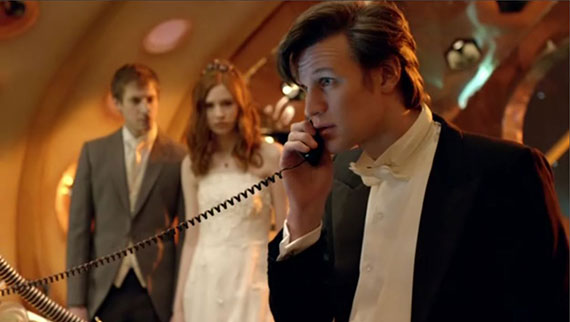
The clock that counts down the 66 remaining seconds of the victim’s life doesn’t add to the terror of the episode as intended, perhaps because the Mummy does little more than give “head rubs of death.” However, the fact that the clock can run uninterrupted, and not disrupt the flow of scenes that feel otherwise organic, highlights the episode’s impeccable editing. This technique could only have benefited Series 3’s “42.”
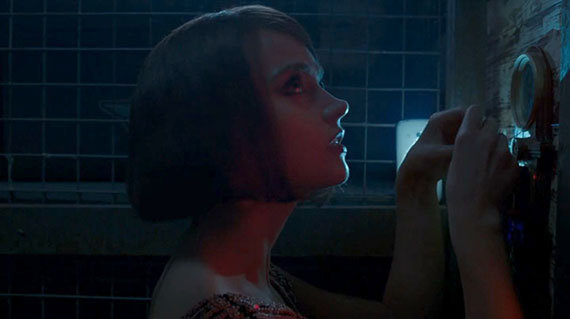
Initially, the scene set on the rocky, alien beach seems like a cop-out; why not show all of the epic action that Twelve describes? However, the episode achieves something greater, finally revealing the true nature of this new Doctor. He’s not cruel or callous, but, sometimes, he has to pretend to be, in order to manipulate those around him and protect as many people as he can. His “heartless” facade is a tool, as are his companions, and he uses both with skill. The Doctor straddles a fine line between coldly analytical and cold. The former recognizes that Maisie’s death was unavoidable, but would provide an opportunity to study the Foretold; the latter coerces Clara into lying to Maisie on his behalf. Are the Doctor’s terrible actions excusable when they are meant to benefit the greater good? Is this the ethical dilemma embodied by Missy? Will Clara have to pay as big a price as the Doctor, and will Danny be that price?
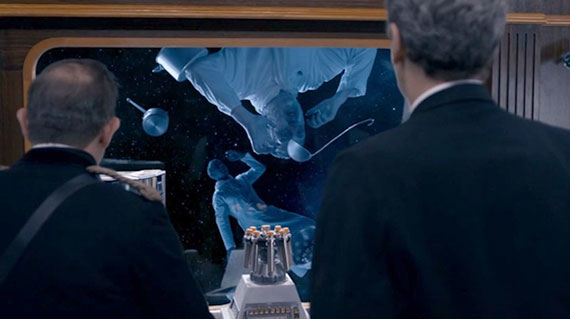
The scene continues with the Doctor stating, “Sometimes the only choices you have are bad ones, but you still have to choose,” finally offering the Doctor’s point of view on the events of “Kill the Moon.”
This conversation between the Doctor and Clara is so important to the overall arc of Series 8 that, as in “Listen,” the production crew puts forth their best efforts to make this one scene truly extraordinary. Filmed against fluffy clouds, pinkly lit by a setting sun, the composition is astonishingly beautiful to look at. Instead of repeating her leitmotif, Murray Gold creates something thematically linked to Clara, now emphasizing the wonder and nescience she must feel, as she comes to understand the Doctor. Note that he is seen from her point of view, below, underscoring that, despite this series’ emphasis on her character, Clara and the Doctor are not equals. Rather, Clara admits that she is an addict to the TARDIS’ special brand of adventure. The Doctor is, too, and now he pushes his intoxicating level of power into the lives of his companions. There is a saying about “absolute power”; perhaps it is to the Doctor’s credit that he has yet to be corrupted, absolutely.
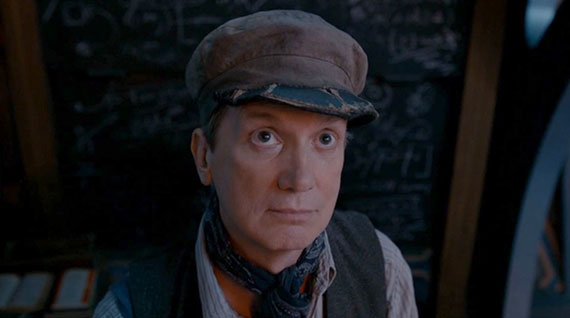
Still, the Doctor lies to Clara. Their space train excursion was never a “last hurrah,” but an excuse to follow up on something that’s been haunting the Doctor, an act that finally capitalizes on the Doctor’s comment that “I’ve made many mistakes, and it’s about time that I did something about that,” in “Deep Breath.” Combining this with the ease with which Clara lies to the Doctor about Danny’s true feelings, and how readily the Doctor accepts that lie (beautifully illustrating Vastra’s message that the Doctor wants acceptance, also in “Deep Breath”) – not to mention that fact that Clara is yet again lying to Danny – forebodes a terrible end, not just for Clara and Danny, but also for Clara and the Doctor, as well.
